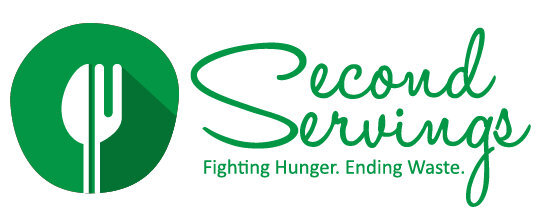Barbara Bronstein noticed an excessive amount of food being wasted at banquets, as a result of no-shows, so she sought out a donation solution. When Barbara learned that the local food bank did not accept prepared food donations, she connected a soup kitchen directly with numerous banquet venues, to retrieve their surplus food. After a year, Barbara was determined to create a more effective, scalable solution to connect abundance with need. While researching, she became aware of the term “food rescue” and began studying and connecting with a multitude of food rescue organizations around the country. Once she got a better idea of the mission at hand, she chose the best practices for the Houston market, and founded the city’s only perishable food rescue organization, Second Servings.
Operations officially began in early 2015, and since then, we have rescued over 19,000,000 pounds of food, valued at approximately $150,000,000+, from more than 450 food donors and delivered it at no cost to 150 local nonprofits.
“We don’t have a food shortage problem; we have a food distribution problem.”
Barbara Bronstein, Second Servings Founder
39% of Houstonians face food insecurity, nearly triple the national average, while almost 40% of our available food supply goes to waste.
Second Servings’ mission is to alleviate hunger and reduce waste in Houston by rescuing perfectly edible surplus food, and delivering it directly to local nonprofits. As the only perishable food rescue organization in Houston, we are growing exponentially and now reach over 300,000 people annually. We deliver high-quality, fresh food to over 150 Houston-area shelters, soup kitchens, low-income housing and other nonprofits from our generous donors, such as distributors, retailers, hotels, sports venues, etc. This perfectly edible food helps nourish abused women and children, at-risk youth, veterans, adults in recovery, disabled homeless seniors, low-income single adults and families and many others. Delivering the food at no cost allows our nonprofit partners to save a significant amount in their food budget, enabling them to serve more people, provide additional services and pay overhead costs.
Not only does rescuing food feed people in need,
but it also benefits our food donors.
Our food donor partners can recognize enhanced tax deductions, improved employee morale, a boost in their public image and reduced waste disposal fees. We make it easy for businesses to share their surplus unserved and unsold food, on a regular or as-needed basis. By using a “same day pick-up and delivery” model, we maximize the freshness of the food and minimize costs. This efficient and practical approach allows us to deliver $40 worth of food for every dollar we spend. Our four refrigerated vans pick up thousands of pounds of unwanted food every day and deliver it directly to the appropriate charities.
to make matters worse, food waste is a major contributor to climate change
Food is the largest component in the landfill at 22%, and emits extremely potent methane gas, said to be 25 times more potent than carbon dioxide. Globally, food waste accounts for 8-10% of all methane emissions. In addition, throwing away food wastes all the precious resources that went into getting the food from the farm to your plate, such as the water, fuel, labor, materials, etc. The United States Department of Agriculture estimates that Americans waste 30-40% of the available food at the consumer and retail levels, costing our economy $218 billion each year.




